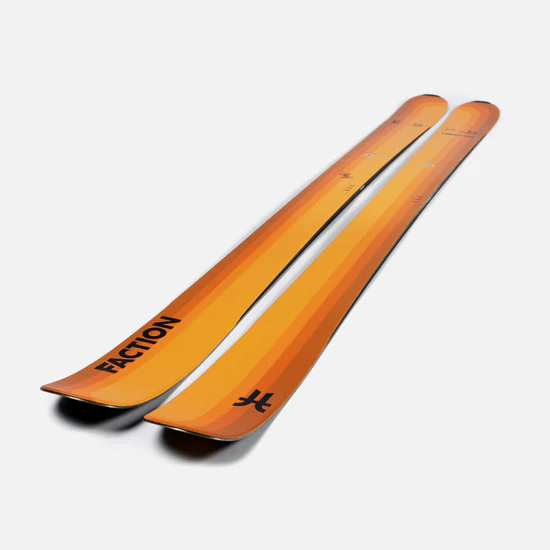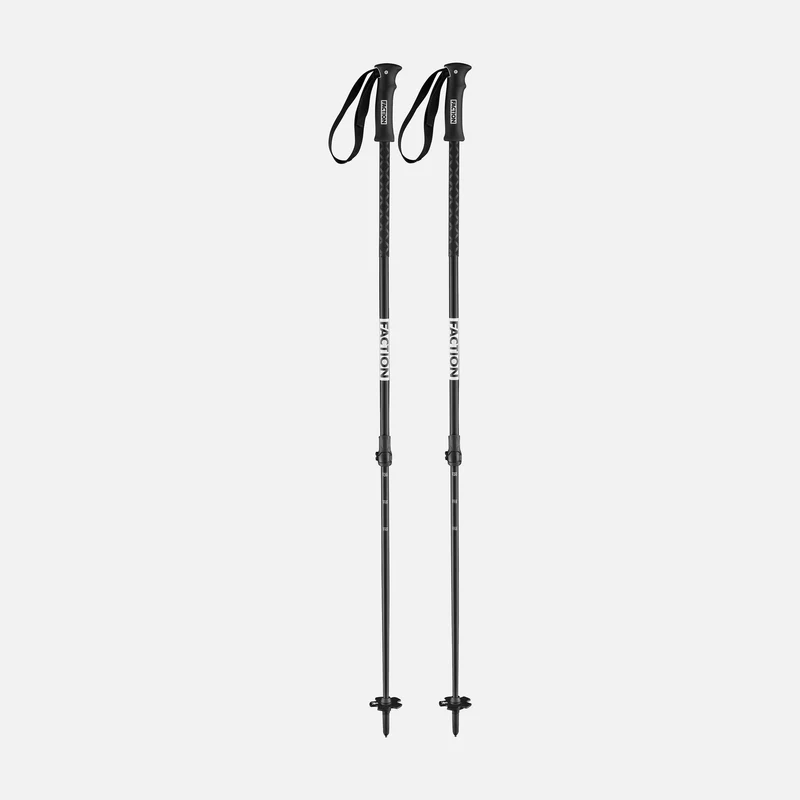Aikyam
SHORT FILM ATHLETE SPOTLIGHT
Aikyam, ऐक्यम् - 'Oneness' in Sanskrit, is a fitting term for Vasu Sojitra’s ambition to understand himself and his family heritage in a deeper sense as he travels to ski in his home country of India for the first time. Gulmarg in India's northern Kashmiri Province is the nation's sole ski resort - where many skiers Indian and otherwise, come together in the plentiful snowfall this area receives in the Western Himalayas to pursue the fall line.
Indian-American professional freeskier and Faction athlete Vasu Sojitra - one of the world's leading adaptive free-skiers - after discovering the beautiful and burgeoning community of local Indians who find solace and purpose in skiing, as he does, a world away from his home in Montana, sets his sights on continuing to grow his roots in the unique community of individuals who call Gulmarg their home mountain.
We recently virtually sat down with Vasu to find out more about his experience.
Interview

For those new to Faction, give us a brief introduction about yourself, Vasu.
VASU — Hi! My name is Vasu Sojitra and I go by the motto of “#ninjasticking through the woods to center intersectionality in the outdoors.” I like to call my forearm crutches and my ski crutches ninjasticks. You’ll just have to come ski with me to know why. As for who I am, I say that I’m a Disability Access Strategist and a Mountain Athlete. I work with companies like The North Face, REI, Faction, and many others to help educate leadership on the Disabled community; to help normalize us, and to provide better representation both in front and behind the lens within leadership positions. I’m more than the sum of my parts, but all in all as an athlete and advocate I work to give back more to the sport that I love than take from it. I lift as I climb the many mountains and communities that we all hold dear.


A lot of our community will remember your show-stopping moments including landing a slick 360 in Abstract: A Freeski Exhibition. What would you like people to take away from watching you perform these feats of athleticism?
Most people will take that at face value and go to the first word that pops in their head when they see a Disabled person doing something unorthodox: “inspirational”. Cool yeah, whatever. Happy to see myself as such, but the biggest thing is if you are truly inspired by me then help me break down many of the barriers that get in the way so more adaptive athletes can experience the mountains like we all do. Learn about disability, go volunteer at an organization, and work to give back to the communities that have helped us all get to where we are because at the end of the day we all need a helping hand, disabled or not.

In the short, you describe that after your surgery, you went on to enjoy more non-traditional activities. Can you describe the pivotal experience that led you to take this journey to become a leading adaptive freeskier?
At a very young age, I learned from my older brother and following friends around that I never liked being told what to do especially if it was based on me having one leg. So from that I trended to many of the “counter-culture” sports like skateboarding. I skated day in and day out. Learning flat ground tricks and walking away with bloody elbows and knee. I look back now and realize that teaching myself how to skate helped me become more resilient and also stubborn as s**t. That mentality migrated to my skiing which I also picked up at a similar time. I became very tenacious and I think that’s what helped me be where I’m at today.

What were the main road bumps you experienced as you became a professional freeski athlete? How did you overcome these?
The biggest road bump in me becoming an athlete was other people. The constant devaluing of not being included, left out, and having to constantly pry myself into a trip or situation. That stubbornness never wore off even to this day and my holding true to that has helped me navigate not only the mountains in a mindful way but also the people around me.
I think society has become a lot more welcoming to folks with disability and also folks of color but it has a long way to go. Learn from our mistakes and make sure we say and do things that help lift folks up vs. putting them down.

What would you say has been the highest achievement for yourself in your career so far?
I think my highest achievement to this day will always be creating more access for my community whether it was with the adaptive organization that I helped lead for 7 years to creating my own grassroots non-profit, Inclusive Outdoors Project. I still think it’s important to see how far my ripples can go to help support those around me.
As for physical achievement, my friend Pete McAfee and I were the first Disabled skiers to ski off of Denali, the highest peak in North America. That was very cool.

Which was your favorite moment of filming this feature in India?
I think my favorite moment to film was being able to ski with other Indian skiers, sharing the gondola with them, and just feeling like there are more folks out there in the ski space who look like me and have similar experiences. Plus I got to share pocket pakoras on the gondi which was a first and I loved that!
It goes without saying that access to the outdoors must be protected as a human right. Are there any projects or communities you’re involved in that supports the development and access to outdoor sport for communities in India, or beyond?
This trip to India specifically Kashmir was more to connect with the local Kashmiris and build an understanding. I’m really hoping to go back and keep that connection growing so that one day they feel represented and heard within the ski space.
My mind is always thinking of different ideas and ways to build bridges so I hope one day I can keep expanding Inclusive Outdoors Project to India where folks and gain more and more access to skiing and riding.

What would you say are the best ways for people and brands to take action and promote access to outdoor sports in underserved communities?
Lean in! And share your time with folks you might not typically interact with. As I said above, go volunteer at an adaptive org, a homeless shelter, a soup kitchen, or a retirement home. Give back however you can. Trust me when I say, it will fill your cup in ways you never thought. And, of course, Vote and be civically engaged locally.
















